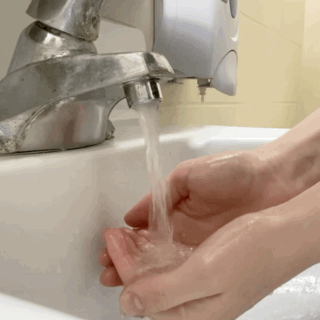“Are you there?” Jen Cotovsky types into the Google Meet chatbox. Still no response. Then, finally, a new message pops up from the student on her caseload. Cotovsky is a social worker for DeKalb High School.
The student has their camera and microphone off, so the chatbox is the only way to talk right now. Those are the most challenging meetings she has with students. At this point, she’s used to talking to high schoolers with their camera off.
“I talked to a student yesterday, her avatar is actually a picture of her,” she said. “And then other kids, like I have a kid whose avatar is a piece of pizza.”
It can be hard to for social workers to connect online with the kids they serve. A sizeable portion of the 45 students on her caseload are freshmen who have never met her and haven’t even been in the high school yet. Typically, she sees them once a week, but some have refused to and she talks to them less often.
The DeKalb School District has been remote for the entire fall. Like other schools, the district briefly brought back a small number of students with extra needs before having to return them to remote learning. Cotovsky said it can be too much for those students, even though they may benefit the most from in-person instruction.
“I understand the idea and purpose behind bringing them back, but to have them continue to transition back and forth is very challenging, and just really not good for them,” she said.
In Sycamore, the district slowly brought even more students back -- especially at younger levels -- through the term. Then they started seeing positive cases and over 300 people under quarantine.
The DeKalb Public Health Department soon advised all schools in the county to go online again.
Sycamore High School Counselor Kristal Templin sees how disheartening it can be this far into the pandemic.
“They had a little taste of it for a couple of weeks and then now it's hard because you know what it could be,” she said.
Educators are trying to find ways to keep students engaged. Cotovsky said she doesn’t think they’re doing well enough helping students connect with their peers in the classroom -- which can be difficult in a Google Meet full of faceless dark squares.
Some teachers have taken to offering extra credit for having your camera on.
Cotovsky has continued to offer self-care strategies and mindfulness techniques. She has a Google site where students can listen to soothing music or learn how to make a stress ball. It’s tough to encourage walks outside in winter as temperatures plummet.
She has some students that meet with her online in small groups, which she said is also beneficial.
But the burnout, distractions and lack of social interaction are having a profound effect on academic performance.
“They're almost more willing to meet with me than they are to go to class,” she said.
Many of her students are at risk of not graduating on time.
“I feel like a lot of my job is focused on helping the kids figure out what they need to do to bring their grades up so that they pass because a lot of my seniors are failing multiple classes at this point,” said Cotovsky.
The social-emotional lessons -- focused on topics like “defense mechanisms” -- she has pushed out to teachers are appreciated, but it’s a challenge to get students to attend.
In Sycamore, social worker Maryellen Spicer says some students are excelling. They’re seeing success with peer-to-peer tutoring.
“We're matching up students who may have strengths in areas of English and history or those who have strengths in math and science, then matching them up with students who are struggling academically,” she said.
Kids’ normal high school problems haven’t gone away either. Spicer said they still need to talk to trusted adults.
“We still have students who have a breakup of a relationship or a parent who's clinically ill. We have students who are struggling with financial difficulties.”
Those issues can sometimes be sharpened by the pandemic. And Cotovsky said working remotely has made it more difficult to meet with general education students who aren’t on her caseload but who could -- normally -- just stop by her office.
Many northern Illinois schools, like DeKalb and Sycamore, plan to be remote until early 2021. But, with the holidays looming and case counts increasing, some parents and educators fear it could be longer.
As they navigate the situation, students and teachers are just trying to keep their heads above water. But it’s clear to those working with them that the academic and emotional ramifications of this pandemic will extend far beyond the eventual return to the classroom.


